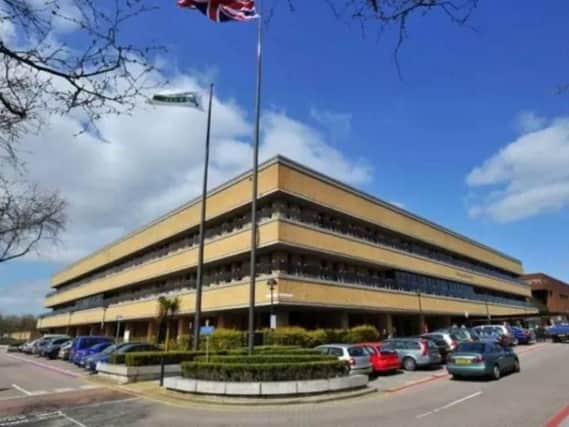Self-harming hospital figures are the 'tip of the iceberg' in Milton Keynes
This article contains affiliate links. We may earn a small commission on items purchased through this article, but that does not affect our editorial judgement.


There were 127 city hospital admissions for self-harm in the year 2017-18 but the Milton Keynes Health and Wellbeing Board (HWB) was told that national figures show that only one in eight (12.5 per cent) of young people self harming present themselves for treatment.
Emmeline Watkins, Milton Keynes Council’s deputy director of public health, told the Board on Wednesday (February 6) that hospital admissions are “very much the tip of the iceberg.”
Advertisement
Hide AdAdvertisement
Hide AdSelf-harm is described by the NHS website as: “When somebody intentionally damages or injures their body. It’s usually a way of coping with or expressing overwhelming emotional distress.
“Sometimes when people self-harm, they feel on some level that they intend to die. More than half of people who die by suicide have a history of self-harm.”
Statisitically the number of hospital admissions for self-harm among people aged 10 to 24 is lower in MK than both the region, or nationally, but the Board is tracking the issue, and aims to improve the situation further.
Last month, a different body, the MK Safeguarding Board, agreed to a plan of action to support young people, their parents and schools to reduce the level of self harm and its consequences.
Advertisement
Hide AdAdvertisement
Hide AdThe HWB, which includes senior representatives from the health service, the police and MK Council agreed to support the approach, while at the same time carrying out a city-wide Mental Health Needs Assessment. They are developing a strategy to nip issues in the bud before they lead to demand ‘escalating’ on health and social services.
Board members also heard that schools are putting strategies in place to promote good mental health, including most of them (80 per cent) having both a governor and a school lead for mental health.
A programme of training and support is being sent to the city’s primary and secondary schools.